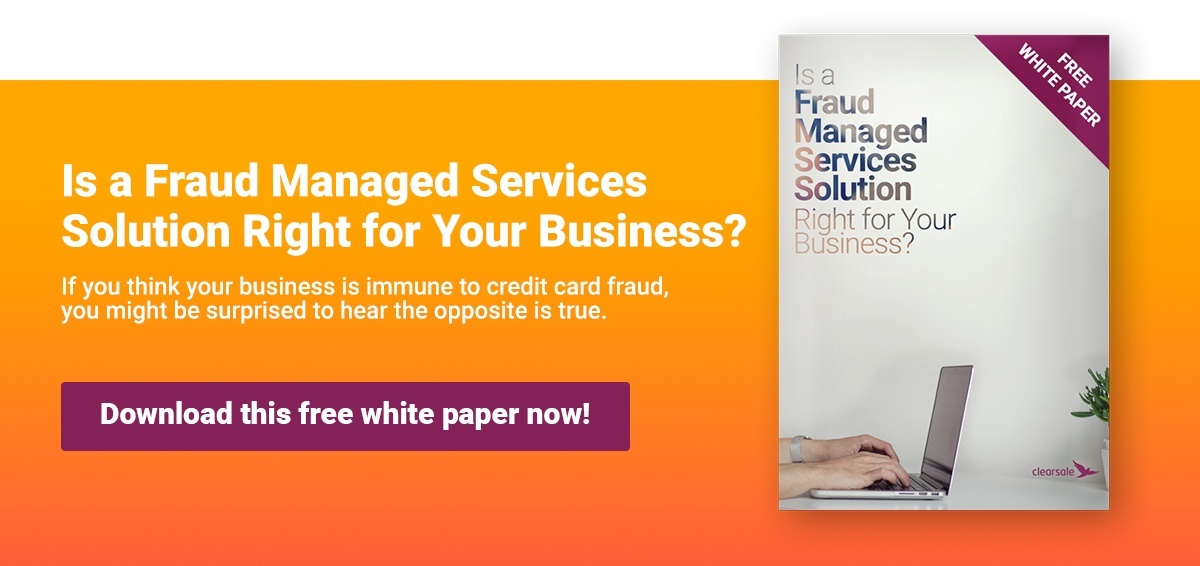Reducing the Expense of PCI Compliance by Outsourcing Fraud Protection
Anytime an e-commerce merchant touches a consumer’s credit card data, the merchant must use a process that complies with regulatory standards like the Payment Card Industry Data Security Standard (PCI-DSS). This includes the merchant’s fraud protection solution.
Although PCI compliance isn’t easy, it’s essential. With 86% of websites at risk of being hacked or compromised, merchants can’t take a chance with sensitive customer data getting into the hands of cybercriminals. This is just another reason why having a comprehensive fraud protection solution in place is so important.
So, the decision is this: outsource the solution or build it in-house?
Why PCI Compliance Matters to E-Commerce Merchants
All businesses that accept or process credit card transactions — whether they’re brick-and-mortar or online merchants — are subject to PCI regulations. These regulations, which dictate the encryption and transmission of credit card data, have the sole goal of keeping credit card data secure as it makes its way from a merchant to the credit card processor.
And while every business understands the benefit of accepting credit cards, many don’t realize that this cost/benefit ratio changes dramatically with just one data breach. The consequences for noncompliant businesses that are hacked are severe and expensive. These include:
- Merchants repaying issuing banks and customers for all fraudulent charges attributable to the breach
- Merchants paying for an investigation to determine how the breach occurred and the number of compromised credit cards
- The card issuer fining the acquiring bank, which then passes those fines — along with some of its own — to the merchant
- Merchants spending precious time and money on developing new, secure technology and processes to prevent a recurrence
- Dissatisfied customers taking their business elsewhere, damaging the merchant’s reputation
- Credit card processors taking away the business’s merchant account, resulting in merchants being at the mercy of a high-risk merchant account and its less than desirable terms and strict conditions
Despite these consequences, many small and midsized businesses think they don’t process enough transactions to be a hacker’s target. But for cybercriminals, it’s just as easy to compromise multiple small businesses as it is to hack one large business. It’s not about how many credit cards a merchant processes or how big the merchant is. What’s important is how merchants process credit cards and screen for potentially fraudulent transactions.
And that’s where PCI-compliant fraud protection solutions step in to save the day.
How Merchants Can Achieve PCI Compliance With Outsourced Fraud Protection
For some e-commerce businesses, like those who process unique transactions or have transaction volumes over $500 million yearly, building an in-house PCI-compliant fraud protection solution may make sense.
But compared with buying PCI-compliant systems, most merchants find that building their own solution:
- Is more time-consuming. PCI compliance has 12 basic requirements that merchants must meet. However, they’re anything but basic and include things like restriction of access, encryption of communication via unsecured networks, controlled physical access, systematic testing and developing and maintaining extensive security policies and procedures.
- Requires additional staff. Merchants must ensure they have sufficient staff to prepare gap analyses, establish compliant security policies, create incident response plans and more. This often means hiring consultants to oversee or complete the work.
- Is more expensive. According to a Gartner report, merchants who process fewer than one million e-commerce transactions yearly spend an estimated $125,000 on assessing and meeting PCI requirements. And merchants who undergo network audits to ensure PCI compliance pay an average of $225,000 yearly — a figure that doesn’t even include operating, staff and technology costs.
Most merchants lack the time, money and staff to build their own solutions. Instead, they choose to purchase compliant solutions from outside vendors that:
- Reduce both upfront and recurring costs of PCI compliance
- Virtually eliminate the time required to implement and maintain solutions
- Minimize personnel costs and additional staff needed to fulfill complex compliance requirements
- Simplify security and compliance by trusting an outsourced solution for the security of business and customer data
Protect Your Business With a PCI-Compliant Fraud Protection Solution
Merchants who outsource their fraud protection to PCI-compliant solutions have a distinct advantage: They don’t need to focus on being compliant themselves. And this means they save money, time and resources.
ClearSale’s fully PCI-compliant, comprehensive fraud protection solution can get you back to doing what you do best: building your business and serving your customers.
Talk with a ClearSale credit card fraud analyst today to learn how our multilayered approach can protect your reputation and bottom line while simultaneously protecting customers against cybercriminals and giving them the confidence that you’re securing their sensitive data.
 Bruno Farinelli
Bruno Farinelli
